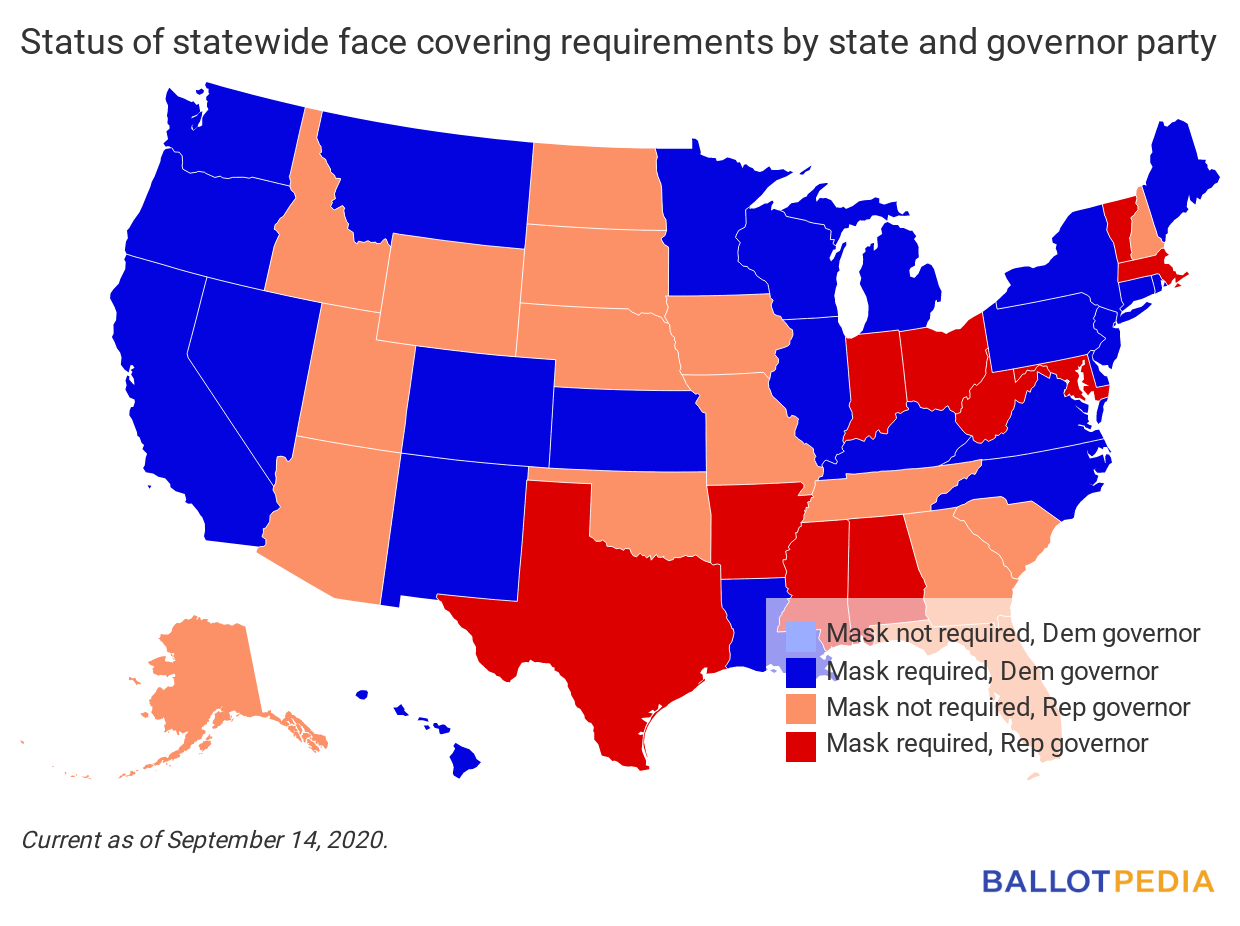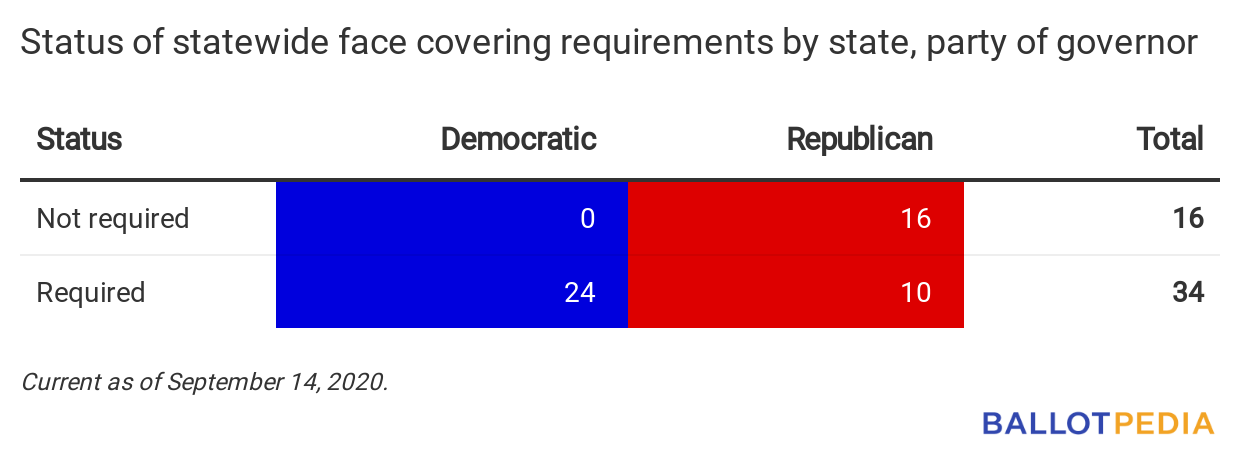Welcome to Documenting America’s Path to Recovery, where we track the status of reopening in all 50 states. Today we look at the reopening of bars in Florida, legislation in Ohio providing immunity from coronavirus-related lawsuits, mask mandates, and more. Want to know what happened Friday? Click here.
Since our last edition
What is open in each state? For a continually updated article on reopening status in all 50 states, click here.
- Colorado (Democratic trifecta): On Sept. 12, Gov. Jared Polis (D) extended the state’s mask mandate for an additional 30 days. The mandate requires anyone 11 years of age or older to wear a mask in public indoor spaces.
- Florida (Republican trifecta): Bars may reopen at 50% capacity. The state’s Department of Business & Professional Regulation announced the reopening on Sept. 10.
- Louisiana (divided government): Gov. John Bel Edwards (D) held a press conference to discuss the state’s Phase 3 reopening order, which took effect Sept. 11. Bel Edwards said bars in the state can reopen at 25% capacity with a maximum of 50 people if their parish’s positivity rate remains at or below 5% for 14 days. Restaurants, churches, salons, spas, and gyms are allowed to expand their capacity to 75%. The statewide mask requirement remains in effect. The Phase 3 order expires Oct. 9.
- Nebraska (Republican trifecta): All counties except Lancaster County will enter Phase Four of reopening. Gov. Pete Ricketts (R) made the announcement on Sept. 10. At the time of his announcement, 27 counties were in Phase Four.
- Nevada (Democratic trifecta): On Sept. 11, Gov. Steve Sisolak (D) signed Emergency Directive 32 extending the expiration date of driver’s licenses through Nov. 12. The directive affects all driver's licenses, identification cards, non-commercial instruction permits, and driver authorization cards with expiration dates between March 12 and Nov. 12.
- Ohio (Republican trifecta): On Sept. 14, Gov. Mike DeWine (R) signed a bill that provides temporary immunity from coronavirus lawsuits to businesses, schools, and health-care workers. Individuals, businesses, and organizations can still be sued if they are accused of intentionally spreading the virus.
- Oregon (Democratic trifecta): Gov. Kate Brown (D) announced Jackson and Jefferson counties were removed from the County Watch List. Brown also said Umatilla County was allowed to move into Phase 2 starting Sept. 11.
- Washington (Democratic trifecta): On Sept. 11, Gov. Jay Inslee (D) released updated guidance allowing indoor fitness and training facilities in counties in the Modified Phase 1 of reopening to operate under Phase 2 guidelines. Those facilities can offer indoor services and group classes with capacity restrictions of 200 square feet per person. Masks are required for all staff and customers.
Daily feature: Face coverings
We last looked at face coverings in the Aug. 31st edition of the newsletter. Since then, no new states have adopted a statewide public mask mandate or let a face covering requirement expire.
 
|
Additional activity
In this section, we feature examples of other federal, state, and local government activity, private industry responses, and lawsuits related to the pandemic.
- Just Born Quality Confections, the producers of marshmallow peeps candies, announced it would not produce Halloween, Christmas, or Valentine’s Day candies in order to meet the expected demand for Easter. The non-Easter seasonal candies are expected to return to stores for Halloween 2021.
- On Sept. 3, a three-judge panel of the U.S. Court of Appeals for the Seventh Circuit refused the Illinois Republican Party's request to block Governor J.B. Pritzker’s (D) COVID-19 restrictions on the size of political gatherings. In its appeal, the state party claimed Pritzker’s orders unconstitutionally imposed a content-based limitation on speech because it allowed religious gatherings to exceed the 50-person limit. The state party also alleged Pritzker has selectively enforced his restrictions on political gathers when he permitted, supported, and participated in a Black Lives Matter protest.
- The Seventh Circuit panel disagreed, finding that precedent "does not compel the Governor to treat all gatherings alike." The panel further concluded that "free exercise of religion enjoys express constitutional protection, and the Governor was entitled to carve out some room for religion, even while he declined to do so for other activities." Finally, the court emphasized that re-subjecting religious gatherings to the mandatory cap would "leave the Republicans no better off than they are today." U.S. Circuit Chief Judge Diane Wood, an appointee of President Bill Clinton (D), and Judges Amy St. Eve and Amy Coney Barrett, appointees of President Donald Trump (R), sat on the panel and were unanimous in their decision. Daniel Suhr, counsel for the Republican Party, said, "We are disappointed in the decision, respectfully disagree with it, and are considering our options." Pritzker has not yet made a statement.
|




